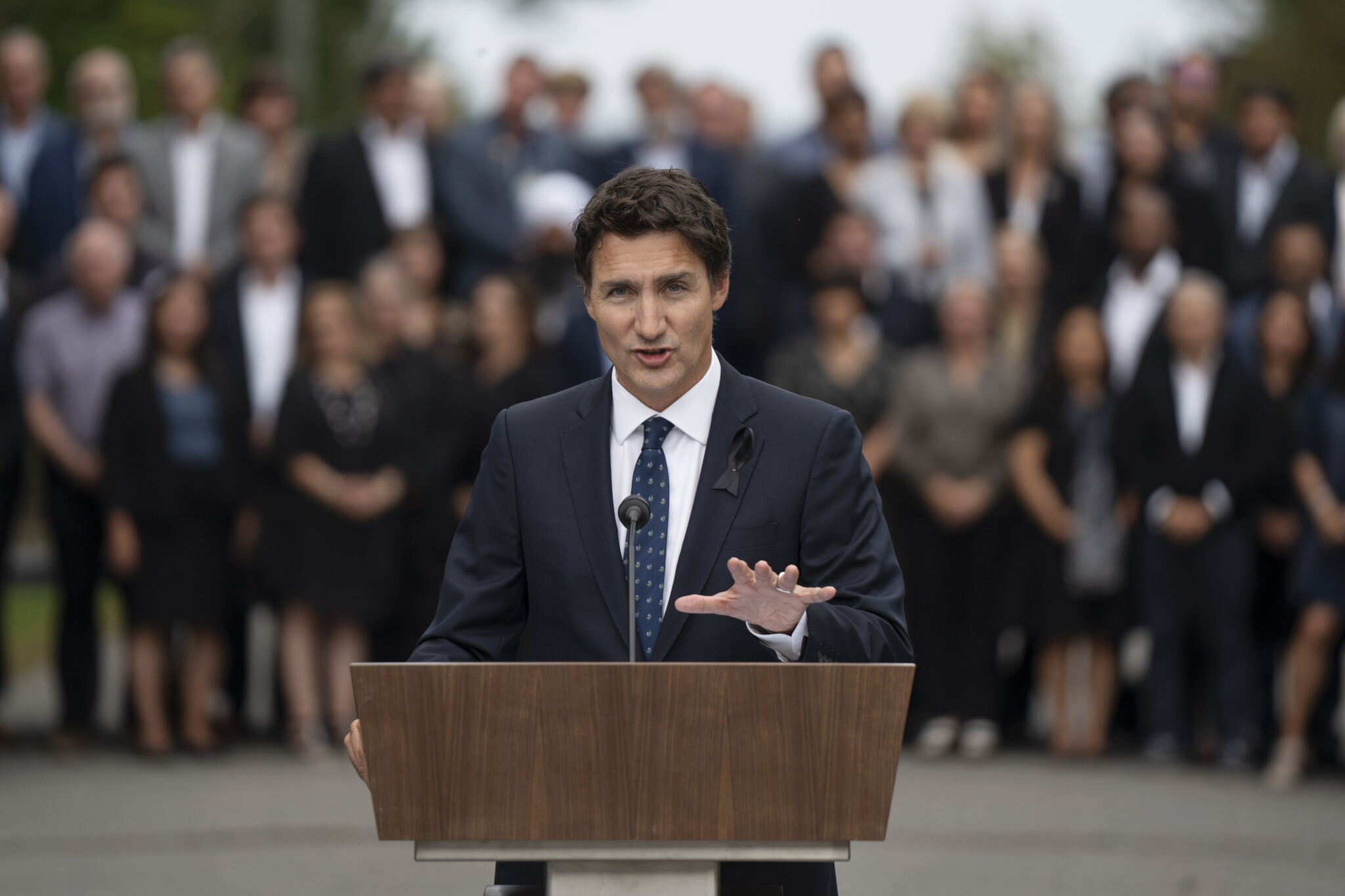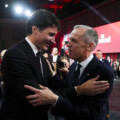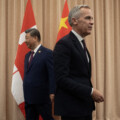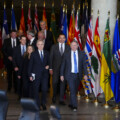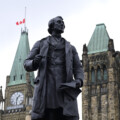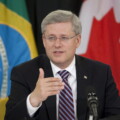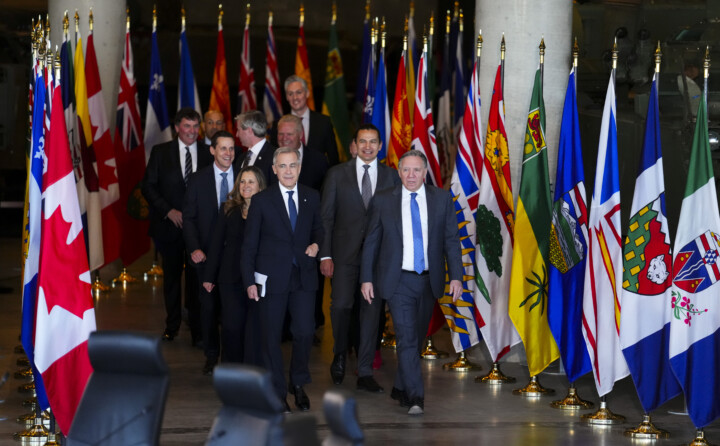In The Weekly Wrap Sean Speer, our editor-at-large, analyses for Hub subscribers the big stories shaping politics, policy, and the economy in the week that was.
Are the Liberals regretting their rejection of the Reform Act yet?
This week was marked by cloak-and-dagger efforts by some number of Liberal MPs to build momentum around a call for Prime Minister Justin Trudeau to step aside.
If the whole episode wasn’t a bit pathetic, it would be kind of funny. It certainly has had a banana republic feel to it.
Reports that the MPs waited until the prime minister and his chief of staff were safely out of the country before organizing. The use of a single, hard-copy version of a letter demanding his resignation. No emails or texts. And a seeming blood oath from MPs so they can’t eventually cave under pressure imposed by the PMO.
This is how leaders are disposed of in third-world autocratic states. But it seems pretty far removed from the Schoolhouse Rock version of Canada’s Westminster system.
Yet Liberal MPs only have themselves to blame. The caucus had the opportunity at the start of this parliament to avail itself of Michael Chong’s Reform Act and the powers and processes it grants to MPs to, among other things, sack their parliamentary leader. And the Liberals chose not to.
Since its passage in 2015, the Conservative caucus has opted to take up the act (or at least parts of it) in its own internal dealings. In fact, it’s the mechanism that Conservative MPs used to engineer Erin O’Toole’s resignation as party leader in 2022.
The Liberals, by contrast, have never adopted the Reform Act. In some of the parliaments since its enactment, they’ve not even bothered following the law’s requirement that they at least made an active decision. They’ve just ignored it altogether.
And now they’re living with the consequences. The process with O’Toole was clear, simple, and straightforward. There was no skullduggery. There was no sneaking about like low-grade CSIS agents. It was a case of a parliamentary caucus confidently exercising its responsibility in our parliamentary system to make a determination about its confidence in the party leader.
This raises a key point. The act’s importance isn’t merely the mechanism for rendering such a judgement. It lies in the rebalancing of the power relationship between the party leader and his or her caucus.
In the Conservative case, O’Toole was in an inherently weak position. He was forced to humbly present himself to his colleagues and their collective assessment of his leadership. Whatever he and others thought about the outcome, this was an exercise in accountable and responsible government.
Over the past week, it has been clear that the direction of the power imbalance is precisely the opposite between Prime Minister Trudeau and the Liberal caucus. The MPs behind these efforts aren’t acting out of confidence. Their behaviour shows that they’re scared. They know the power still lies with the prime minister even though he ought to be weakened by his overwhelming unpopularity.
There are now reports that this group of MPs intends to verbally raise their concerns at next week’s caucus meeting. There’s reason to be a bit skeptical. The rules and incentives aren’t on their side. And the consequence is that they’re likely to eventually lose their jobs due to their unpopular leader.
It makes one wonder: do you think they regret not adopting the Reform Act now?

Ontario Premier Doug Ford speaks to media at a premiers’ meeting in Halifax on Monday, July 15, 2024. Darren Calabrese/The Canadian Press.
Unserious policy from an unserious government
This week, Ontario’s Ford government announced its Fall Economic Statement will be released later this month on October 30.
The announcement precipitated speculation about what it might comprise, including media reports that the government may announce a $200 rebate to Ontarians in advance of a much-anticipated provincial election. At this point, it’s unclear whether this is just rampant speculation or a case of purposeful pre-positioning by the government.
Either way, the reporting hasn’t really bothered to justify the policy case for such a large fiscal outlay. It’s been by and large assessed as a matter of raw politics—which itself is a statement on the Ford government’s disappointing time in the office. Its efforts to restore the province’s public finances have been largely abandoned. The province’s net debt as a share of GDP or revenue has grown over its tenure and is likely to continue growing in a world of untargeted and unjustified $200 giveaways. (One-time $200 payments—particularly deficit-financed ones—aren’t the same as a permanent tax cut.)
A government that was supposed to care about “protecting what matters most” (which was the name of its first budget) has evolved into a petty, spendthrift, and lowest-common-denominator government.
In a world of real scarcity—including one in which RBC Economics anticipates that Ontario will be the slowest-growing province this year—one would think that the government would be seized by boosting investment, productivity, and economic output.
But if the past several years have taught us anything, it’s that the Ford government doesn’t really care about macroeconomic developments. It’s a purely microeconomic government which itself is probably overly congenial as an overarching description. Put more simply: it’s the kind of dumb-downed government that mails out $200 cheques to obscure its systematic failure to address the province’s real challenges including a sustained period of secular stagnation on its watch.
These types of populist stunts persist in our politics because they tend to work. But if these reports are true and the government proceeds with a round of Ford bucks, one wonders if it may prove an exception to the rule. Ontarians aren’t stupid. They know that the economy is underperforming, the health-care system is in crisis, and other big challenges plague the province.
In such a context, there’s a risk for the premier that the public ultimately sees these payments for what they are: an unserious policy from an unserious government.
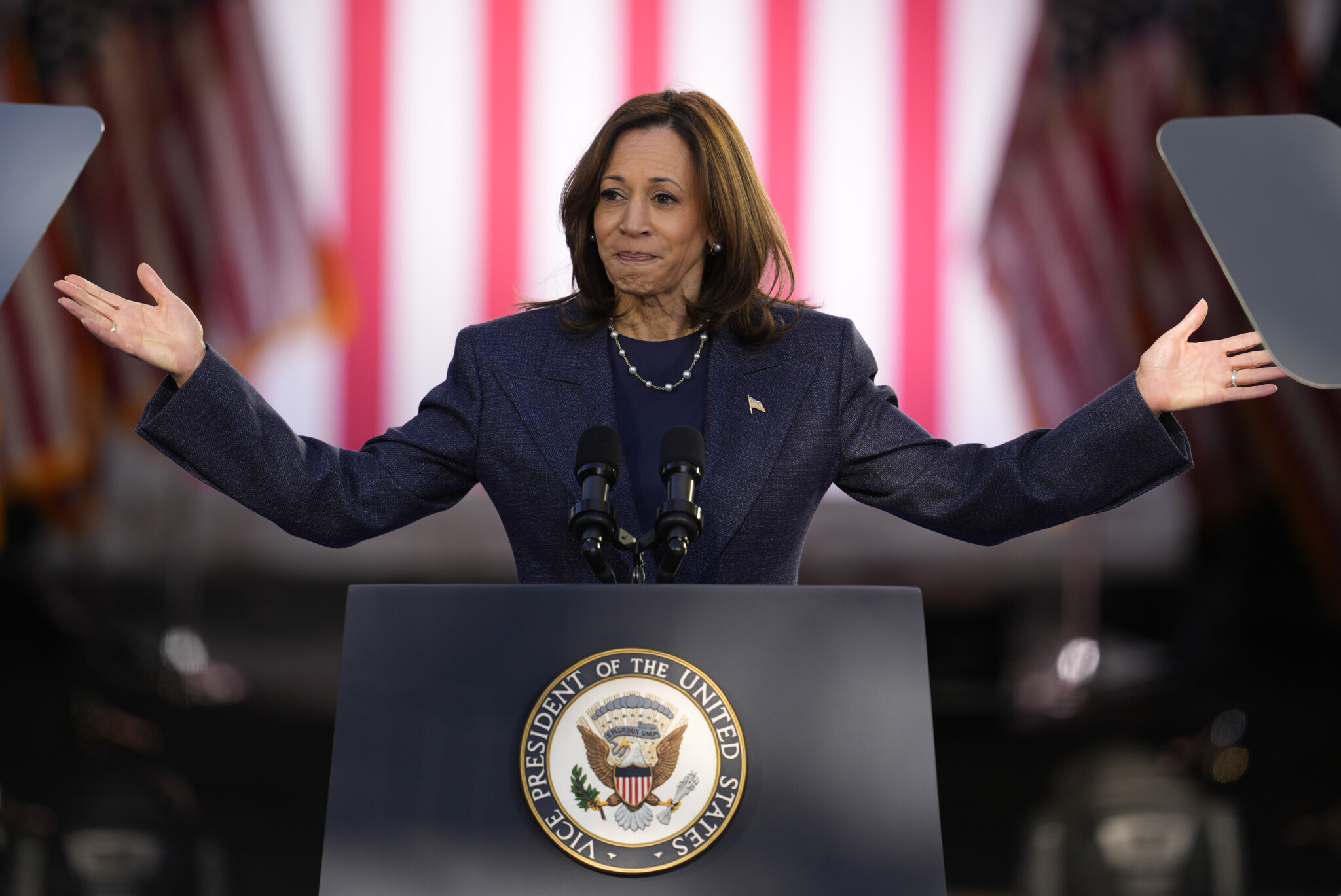
Democratic presidential nominee Vice President Kamala Harris speaks during a campaign event at Washington Crossing Historic Park, Oct. 16, 2024, in Washington Crossing, Pa. Matt Slocum/AP Photo.
Progressive ideas are now a political liability
Over The Hub’s first three-and-a-half years as a publication, I’ve written about the early sense of a progressive ascendancy and more recent signs that its fecundity is waning. Election campaigns in Canada and the United States affirm the latest assessment.
Today British Columbians will vote in a too-close-to-call election between the incumbent New Democratic government and the insurgent Conservative Party. The government’s somewhat surprising showing in the campaign can be mostly attributed to a concerted effort to run away from its progressive ideological commitments. One Globe and Mail columnist has characterized Premier David Eby as transforming into a “prairie populist.”
He has repositioned himself from his left-wing activist roots to a tax cutter, sudden decriminalization skeptic, and even someone who concedes that paper straws “suck.”
It’s the political equivalent of the economic theory of “revealed preferences” which tells us that the best way to understand consumer preferences is to observe one’s actual behaviour.
Eby’s revealed political preferences—his actual political choices in a highly-contested campaign versus his own ideological commitments—are telling. They signal that even left-wing ideologues recognize that progressive ideas are now a political liability. He’s clearly reached the conclusion that he can only win by subordinating his long-standing ideas and essentially accepting (even if insincerely) basic conservative premises.
The same goes for Kamala Harris’s presidential campaign. Her failed 2020 campaign nodded to virtually every left-wing priority no matter how radical—including defunding the police, banning fracking, and affirming illegal immigration. This cycle’s campaign has not only distanced her from these past positions but it’s involved reliable support for Israel, tax cuts for families, and even the surprising revelation that she personally owns a Glock.
Even if one is skeptical that these policy commitments are sincere (or at least fully reflect Harris’s own priorities), the fact that she and her campaign have self-evidently decided that her progressive preferences are harmful to her political interests is notable.
It tells us that even leading progressives can see that the failures of left-wing governance over the past several years have produced a conservative chain reaction. They know that the early promise of a left-wing realignment has failed to materialize. Quite the opposite. It has precipitated a right-wing pushback that’s recentering our politics and increasingly winning the arguments of the day.
The upshot: Eby and Harris might ultimately pull out close wins—but if they do, it will be because they ran away from who they are and what they want to stand for. And that counterintuitively is a good sign—a revealed preference if you will—that conservative ideas may be on the ascendancy.
